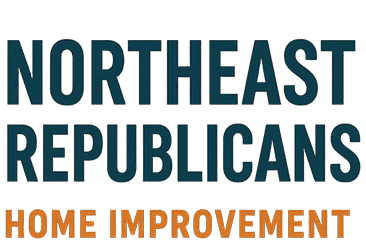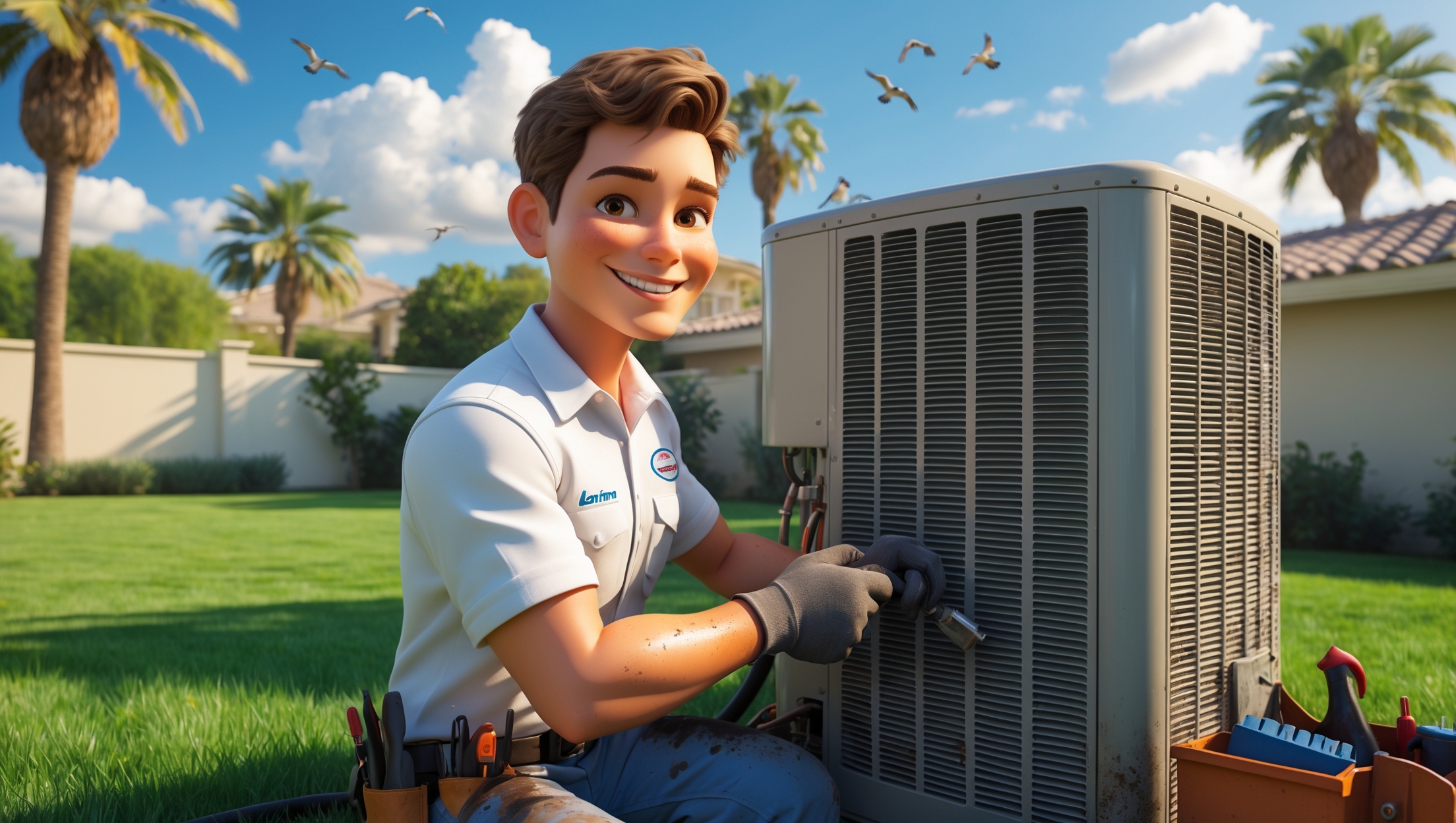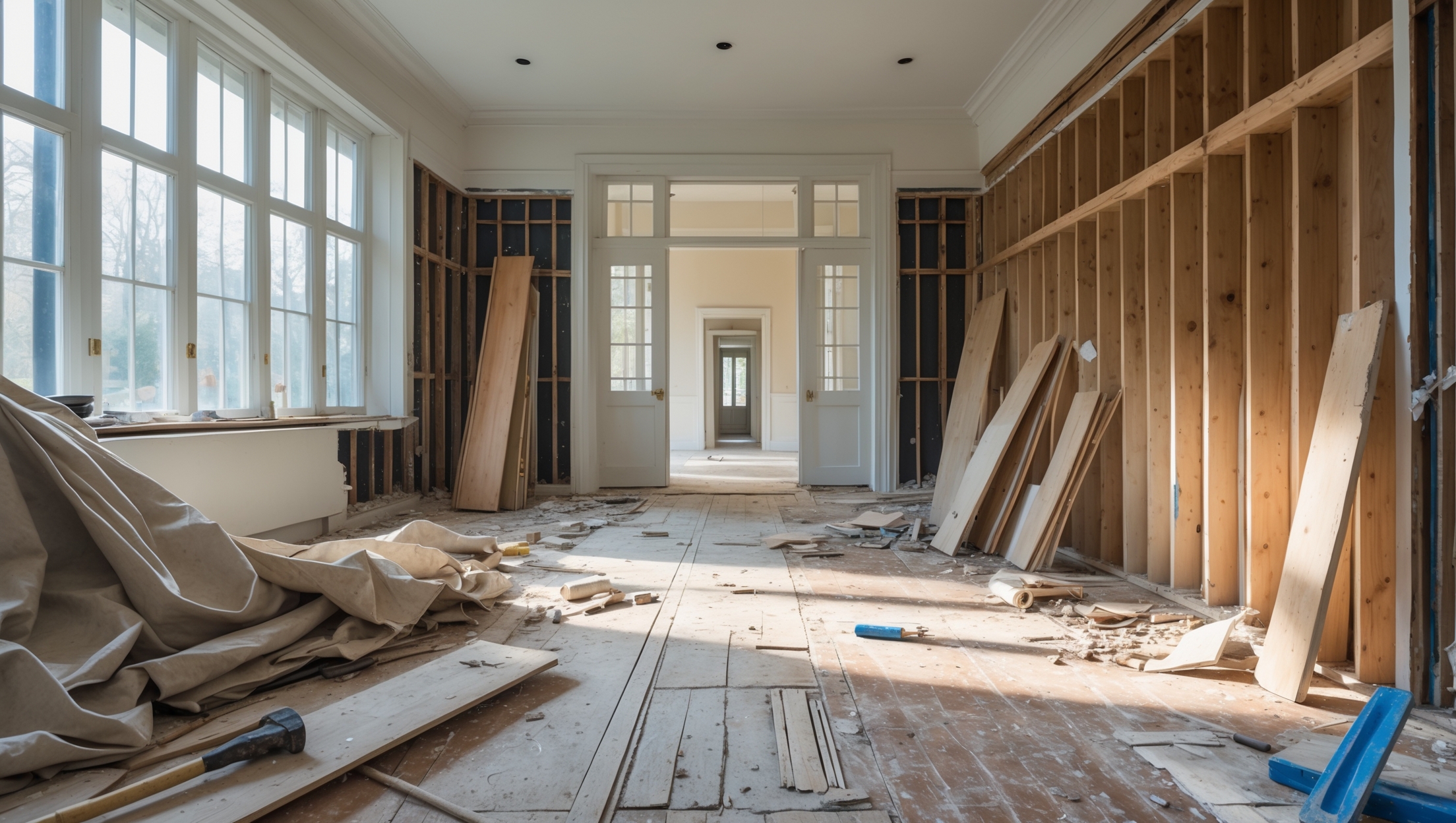Introduction: The Importance of Choosing the Right HVAC Company in Los Angeles
Living in Los Angeles means enjoying mild winters and hot, dry summers, but it also means your home’s HVAC system works hard to keep you comfortable year-round. When your air conditioner struggles in the peak of summer heat or your heater falters on a chilly night, finding a trustworthy local HVAC company becomes a top priority. The stakes are high: a reliable HVAC partner ensures not only comfort but also indoor air quality, energy efficiency, and long-term savings. However, with so many options available, homeowners often feel overwhelmed by the process of choosing the right service provider. This comprehensive guide will help you navigate each step, from understanding the unique needs of Los Angeles homes to evaluating credentials, asking the right questions, and preparing for residential HVAC repair. Whether you’re facing an urgent breakdown or planning routine maintenance, arming yourself with expert knowledge will make all the difference in achieving comfort, safety, and peace of mind.
Understanding HVAC Needs in Los Angeles Homes
Climate Factors Unique to Los Angeles
Los Angeles is characterized by its Mediterranean climate, featuring hot, dry summers and mild, occasionally damp winters. These weather patterns place significant demands on air conditioning systems, especially in older homes that may lack modern insulation. The region’s frequent heat waves mean HVAC systems must be robust, efficient, and properly sized for the home. Moreover, air quality concerns—such as smog and wildfire smoke—make filtration and ventilation essential components of residential systems.
Common Residential HVAC Challenges
- Inconsistent Cooling or Heating: Variations in temperature between rooms can signal duct issues or improper system sizing.
- High Energy Bills: Older or poorly maintained systems often consume more electricity.
- Poor Air Quality: Dust, allergens, and smog can circulate without proper filtration and regular maintenance.
- Noisy Operation: Rattling, squealing, or banging sounds often indicate worn components or debris in the system.
- System Breakdowns: Frequent cycling, failure to start, or blowing warm air are signs that prompt attention is needed.
What Sets a Great Local HVAC Company Apart?
Licensing, Insurance, and Certification
California requires all HVAC contractors to be licensed through the Contractors State License Board (CSLB). Always verify the license number and ensure the company carries both liability and workers’ compensation insurance. Leading companies also employ technicians certified by organizations such as NATE (North American Technician Excellence), reflecting a higher standard of expertise and professionalism.
Local Knowledge and Community Reputation
Working with a local HVAC company offers distinct advantages. These providers understand the unique climate challenges of Los Angeles neighborhoods and are familiar with local permitting requirements and utility rebate programs. Their reputation is built on trust and word-of-mouth within the community, so they are more likely to offer reliable, personalized service. Look for companies with positive reviews on platforms like Google, Yelp, and the Better Business Bureau. Consistent feedback regarding punctuality, technical skill, and customer service is a strong indicator of quality.
If you need fast service, consider contacting an HVAC company near you in Los Angeles for prompt assistance.
Transparent Pricing and Clear Communication
Professional HVAC companies provide transparent estimates, explain their pricing structure, and outline the scope of work in writing. Beware of vague quotes or pressure tactics. A reputable contractor will answer your questions patiently and offer clear explanations about required repairs, equipment options, and maintenance plans.
Comprehensive Services for Residential Needs
The best HVAC partners go beyond basic repairs. They offer a full suite of services, including system installation, preventive maintenance, indoor air quality solutions, and energy efficiency audits. This breadth ensures your HVAC needs can be met now and in the future.
How to Evaluate and Select the Right HVAC Company
Step 1: Gather Recommendations and Research
Start by asking neighbors, friends, or local social media groups for referrals. Compile a shortlist of candidates and research each company’s credentials, reviews, and years in business. Check for membership in professional associations, such as the Air Conditioning Contractors of America (ACCA).
Step 2: Verify Licensing and Insurance
Request the contractor’s license number and confirm it on the CSLB website. Also, ask for proof of liability and workers’ compensation insurance. This protects you in the event of accidents or property damage during repairs.
Step 3: Assess Experience with Residential HVAC Repair
It’s wise to trust a local HVAC company with strong community ties when scheduling maintenance or repairs.
Residential HVAC systems have unique requirements compared to commercial setups. Ask prospective companies about their experience with home systems, especially if you have older equipment, historic architecture, or specific air quality concerns. Inquire about brands they service and parts availability for your system model.
Step 4: Request Detailed Estimates
Obtain written estimates from at least three companies. Ensure the quotes detail labor, parts, potential additional fees, and warranty information. A thorough diagnosis and clear explanation of recommended repairs are hallmarks of trustworthy companies.
Step 5: Evaluate Communication and Customer Service
Pay attention to response times, professionalism, and willingness to answer your questions. The best companies prioritize customer education and will not pressure you into unnecessary services. Prompt responses and courteous staff are good signs of future reliability.
Questions to Ask Before Hiring an HVAC Company
- Is your company licensed, bonded, and insured?
- Can you provide references from recent residential clients?
- What brands do you service and are you an authorized dealer?
- How do you handle emergency residential HVAC repair calls?
- Do you offer written estimates and warranties on repairs?
- What is your protocol for ensuring technician safety and cleanliness inside homes?
- Are there maintenance plans or service agreements available?
- How do you stay current with local building codes and energy efficiency standards?
What to Expect During Residential HVAC Repair
Initial Assessment and Diagnosis
When you schedule a repair visit, the technician will begin with a thorough inspection of your system. They may check thermostat settings, electrical connections, refrigerant levels, filters, and ductwork. They’ll listen for unusual noises and look for signs of leaks, corrosion, or worn parts. Once the issue is identified, the technician will explain the problem and present repair options, including costs and timelines.
For urgent home climate issues, residential HVAC repair is the most effective solution.
Common Residential HVAC Repairs in Los Angeles
- Refrigerant Leaks: Repairing leaks and recharging refrigerant to restore cooling efficiency.
- Compressor or Fan Motor Replacement: Addressing the heart of the system for proper airflow and cooling.
- Thermostat Malfunctions: Replacing or recalibrating thermostats that cause inconsistent temperatures.
- Electrical and Wiring Issues: Fixing faulty connections that prevent the system from starting or running safely.
- Clogged Filters or Ducts: Cleaning or replacing filters and clearing ducts to improve air quality and system efficiency.
Timeline and Service Expectations
Most routine repairs can be completed in a single visit, especially if the company stocks common parts. More complex issues, such as replacement of major components, may require follow-up appointments. Reputable providers will communicate clearly about scheduling and keep you informed of any changes or delays.
Tips for Homeowners: Maintaining Your HVAC System
Seasonal Maintenance Checklist
- Change or clean air filters every 1-3 months, especially during high-use periods.
- Clear debris and vegetation from around outdoor condenser units.
- Schedule professional inspections and tune-ups twice per year (spring and fall are ideal).
- Seal air leaks around doors and windows to reduce HVAC workload.
- Install a programmable thermostat to optimize comfort and savings.
When to Call for Professional Help
If you notice unexplained increases in energy bills, uneven temperatures, strange noises, or reduced airflow, it’s time to call a professional. Timely intervention can prevent minor issues from escalating into costly repairs. Establishing a relationship with a trusted local HVAC company ensures you have expert help on hand when you need it most.
How to Spot Red Flags: Avoiding Unreliable HVAC Companies
- Unlicensed or uninsured operators offering unusually low prices.
- Vague or verbal-only estimates with no written documentation.
- High-pressure sales tactics or pushy upselling of unnecessary services.
- Negative reviews mentioning missed appointments, incomplete work, or poor communication.
- Lack of a physical business address or professional website.
Trust your instincts—if something feels off, continue your search until you find a provider who meets all your criteria for professionalism, transparency, and reliability.
Conclusion: Investing in Comfort and Peace of Mind
Your home’s comfort, safety, and air quality depend on the performance of your HVAC system. In a climate as demanding as Los Angeles, choosing the right local HVAC company is not just a convenience—it’s a necessity. By focusing on licensed, insured, and community-oriented providers, you protect your investment and ensure expert, reliable service for years to come. Take the time to research, ask questions, and evaluate your options carefully. Whether you need immediate residential HVAC repair or want to establish a long-term maintenance relationship, the right partner will offer peace of mind and help your system perform at its best. With the information in this guide, you are equipped to make an informed decision that keeps your home comfortable and your family safe, no matter the season. Don’t settle for less—invest in quality, local expertise, and proactive care for your HVAC system.




